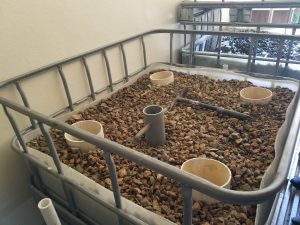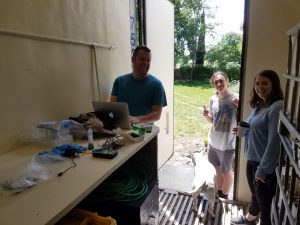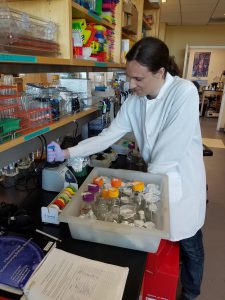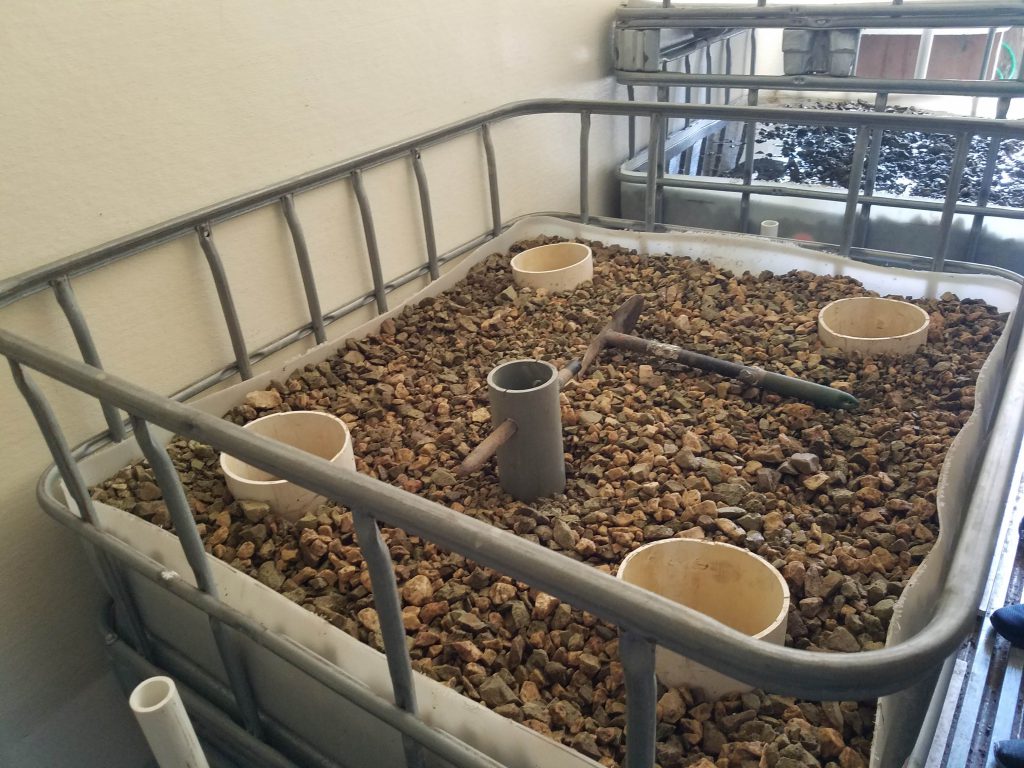
So our lab appears to be digging deeper and deeper into the world of wastewater treatment, especially the process of removing ammonia from wastewater in the final steps. I’ve posted before about our sample collection from a pilot wastewater treatment facility. We’ve been sequencing those samples like crazy… we’ve thrown Nanopore, Illumina, and PacBio data at them. Hopefully we’ll have some interesting results forthcoming soon!
But we just started another new project, thanks to a former undergraduate from the lab, Amanda Everitt. She and a colleague, Anders Dohlman, are looking at different bioinformatics pipelines designed to analyze time series 16S data. They’ll be doing a bunch of benchmarking with synthetic data, but got a grant to generate some fresh real-world data for validation. And I offered the wastewater project. :)
To that end our engineering collaborator, Rob Collison, is setting up a pair of new tanks to look at the same zeolite-anammox process that we’ve been studying with our ongoing analysis. But this time we’ll collect time series data, starting before the system is up and running, through inoculation with sediment from a pilot reactor, through stabilization of the microbial community many months later (anammox bacteria don’t grow very fast).


Should be interesting! Virtually nothing is none about the microbial community succession in this context that eventually leads to stable anammox biofilms that break down ammonia at industrially relevant levels.
